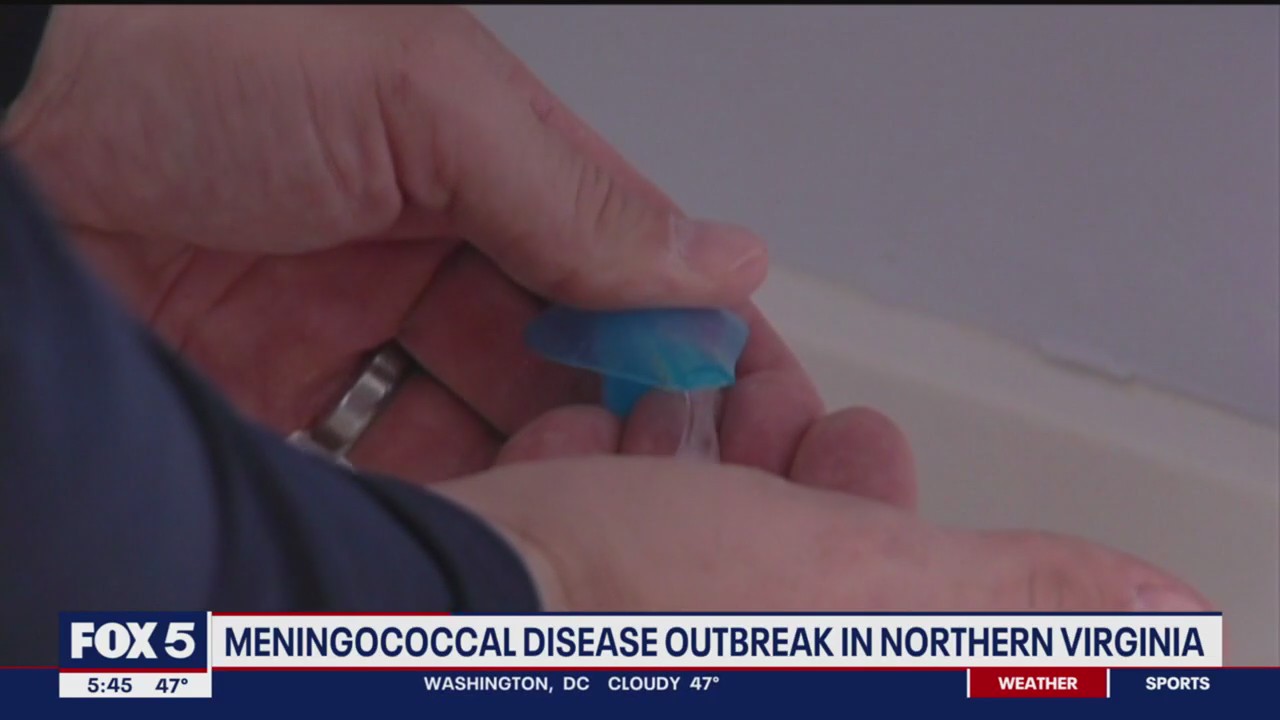'Shockingly fast': Northern Virginia man reportedly dies from meningococcal disease

Deadly Meningococcal disease outbreak in Virginia
Virginia’s Department of Health is warning healthcare providers and residents about a deadly meningococcal disease outbreak in Virginia that has been ongoing since 2022. FOX 5's Tisha Lewis has the story.
RESTON, Va. - Virginia’s Department of Health is warning healthcare providers and residents about a deadly meningococcal disease outbreak in Virginia that has been ongoing since 2022.
Northern Virginia Magazine first reported that at least one recent case in Northern Virginia was deadly, saying the disease claimed the life of a Reston man in February, citing his family as the source. VDH did confirm one death from the disease in Northern Virginia.
VDH reports there have been 32 confirmed cases of meningococcal disease from June 2022 through Feb. 6, 2024, including six deaths. A common risk factor among those who died from the disease hasn’t been discovered, but VDH says genetic sequencing confirmed the cases are "highly genetically related."
Northern Virginia Magazine reported the Reston man who died played tennis a day before his death, and that his family said it happened "shockingly fast." He reportedly experienced trouble breathing and was rushed to the hospital that evening.
"This is a bad actor. We are trained to run, not walk when we think that there is a case of meningococcemia in any care setting that we're involved in," Dr. Christina Johns, Senior Medical Advisor with PM Pediatrics told FOX 5.
The state’s health department tells FOX 5 they cannot comment on specific cases.
"Our most important priority is protection against illness," Meredith Robinson, Vaccine-Preventable Disease Coordinator with the Virginia Department of Health, said.
There is a vaccine for meningococcal disease and healthcare leaders are encouraging people to get the vaccine, especially children between 11 and 12 years old or those at increased risk. Children aged 16 should receive a booster dose.
The disease is spread through respiratory and throat secretions, including saliva. VDH says some ways people spread the bacteria to others is through kissing, coughing or sneezing directly into the face of others, or sharing cups, water bottles, eating utensils, cigarettes, lipstick, or toothbrushes. The department says people don’t catch it through casual contact or by breathing air where someone with the disease has been.
Symptoms reportedly are flu-like before becoming more severe. Seek care quickly if you experience symptoms.


